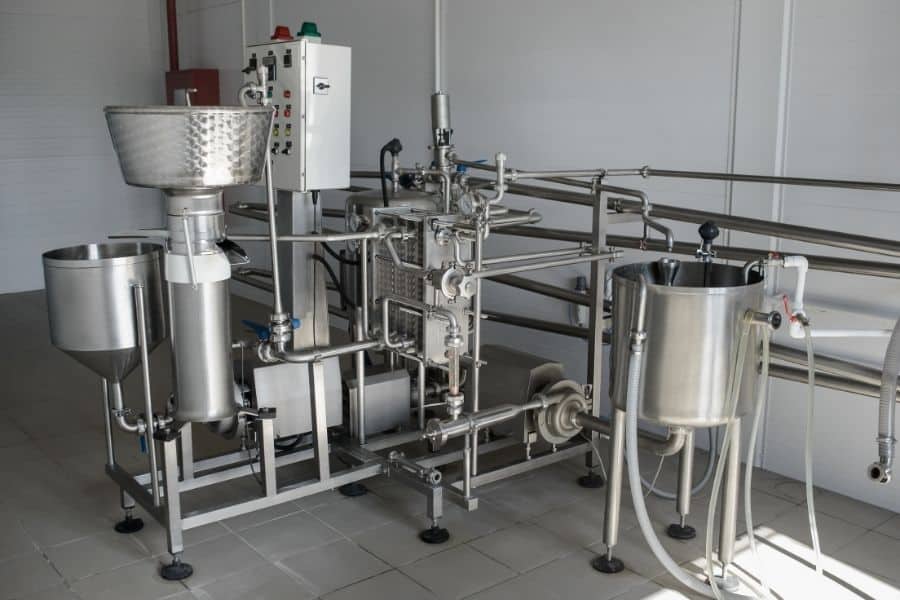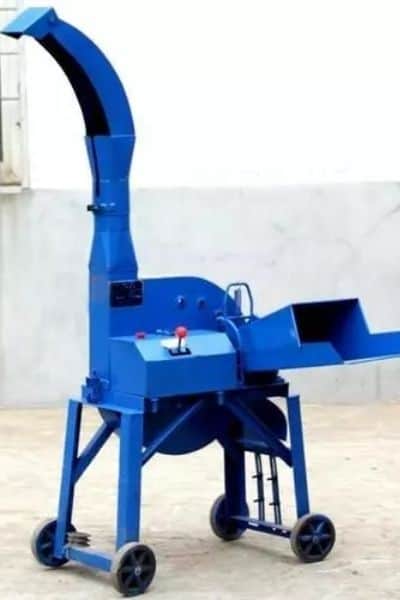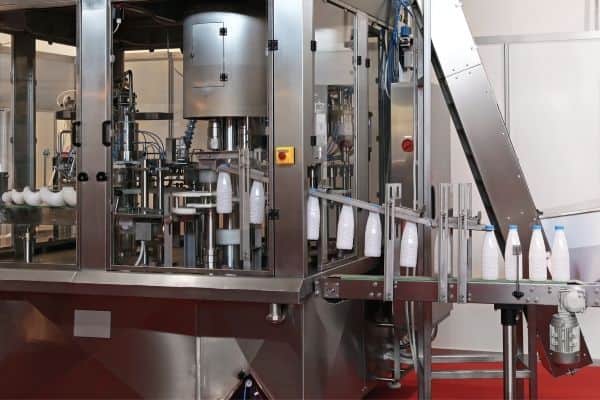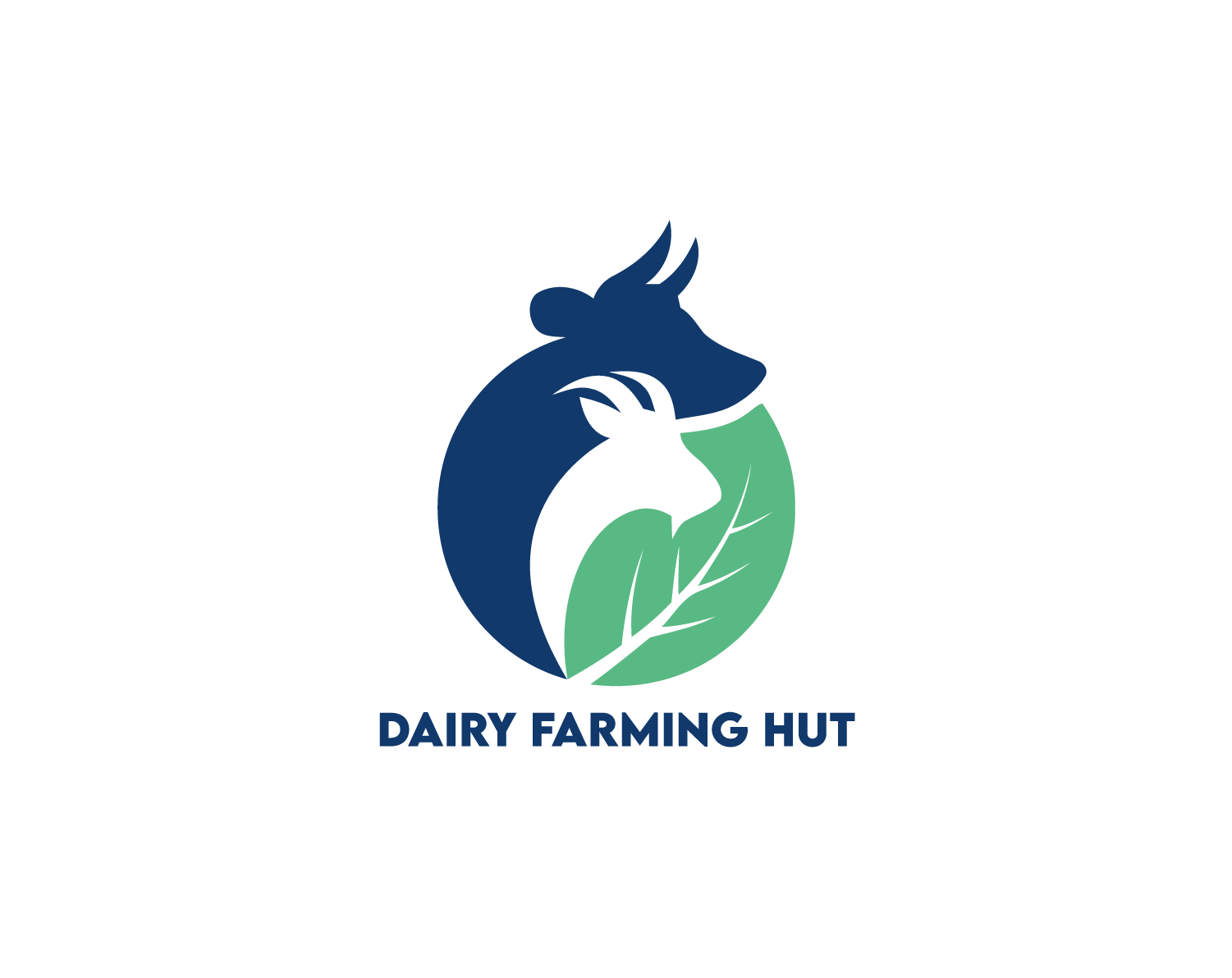Owning and operating a small dairy farm or micro-dairy requires time, money, and commitment, and striking a balance between the three can be challenging. Investing in the right equipment can help create that balance by improving your micro-dairy efficiency and maximizing your dairy output. The best way to do this with a limited budget is to invest in the right equipment.
What Constitutes A Small Dairy Farm?

Building a successful micro-dairy first requires an understanding of what a micro-dairy is.
A micro dairy is a small-scale dairy farm that can have as few as four cows.
Small-scale dairy farms like this are usually started for one of two reasons:
- 1As a "starter" course leading up to ownership of a larger dairy farm.
- 2As a side-venture for people with an interest in dairy farming but who have limited time to invest
No matter your reason for starting a micro dairy, your equipment (as well as your livestock) is your lifeblood, but what kind of equipment is best for a small-scale dairy operation?
Small Dairy Farm Equipment List
Milking Machine
A milking machine may not be necessary if you plan to milk your cows by hand; however, adding machines into your dairy can speed up production and free up your time for other duties.
It takes between five and seven minutes to milk each cow using a portable milking machine, so with a small herd, this is a cost-effective milking solution. Something like an eight-gallon bucket milker will do the job nicely.
A bucket milker has a bucket with a lid, a vacuum pump, a pulsator, and a claw. The pump connects to the milker with a vacuum line, and as the cow gets milked, the bucket fills. Depending on the amount of milk produced, an eight-gallon bucket can hold milk from one to two cows.
However, a bucket milker may not be adequate for larger herds, and you may need to invest in a more robust option.
The average cost for a good bucket milker is between $200 and $400.
The average cost for a milking parlor machine for six cows is between $1,200 and $1,500.
Popular Milking Machine Brands
Here are some milking machines on Amazon that we recommend for small and medium sized dairy operations.
Pasteurizer
Pasteurization is crucial to food safety, and since 1973, the U.S. Food and Drug Administration has required that only dairy products that get pasteurized get distributed interstate.
Dairy products that do not get pasteurized can carry bacteria like E. coli, Salmonella, Campylobacter, and Listeria. Unpasteurized products are called “raw.” Raw dairy products are legal in all U.S. states; however, they can cause severe illness, they are discouraged.
A milk pasteurizer can cost anywhere from $500 to $5,000. The cost depends on whether you purchase a milk pasteurizer only or a multi-functional machine like a pasteurizer, cheese, and yogurt kettle.
Popular Pasteurizer Brands
Check out these pasteurizers that are suitable for small to medium sized dairy farms
Homogenizer
Homogenization is often confused with pasteurization, but these are two different processes. Homogenization comes after pasteurization. While pasteurization makes dairy products safer, homogenization makes them have a better taste and consistency.
A homogenizer breaks down the fat molecules in milk to create a uniform consistency throughout and stop the fat molecules from separating.
Without homogenization, your milk forms a thick layer of cream at the top – something older generations may recall from the days of milk delivery.
Homogenizers get used for a range of dairy products, including milk, yogurt, and cheese.
A small dairy homogenizer can cost anywhere from $600 to $3,000, but a full commercial unit costs over $20,000!
You may also want to read our post about types of homogenizer and its functions.
Popular Homogenizer Brands
Cream Separator
A milk or a cream separator is a device that separates the cream from the milk. Once separated, you end up with two products: cream and skimmed milk.
Separators come in various forms.
The hand crank separator requires you to do everything manually. Unless you are running a very small dairy, this isn't the most practical option. A hand crank or manual separator will cost you around $300.
The electric cream separator spins the milk, and the centrifugal force separates the milk and the cream. A smaller electric milk separator that can handle two and a half gallons at once and process approximately twenty-one gallons per hour will cost around $350.
Check out our buyers guide covering the best Milk Separators available in the market.
A larger electric cream separator to accommodate more separation per hour will cost between $700 and $1,000. A price of just under $1,000 should get you a separator that can process approximately thirty-four gallons per hour.
Popular Cream Separator Brands
Check out milk and cream separators that are ideal for small dairy farms.
Chaff Cutter
A chaff cutter or fodder cutter may also be called a “feed cutter.” This is precisely what the chaff cutter does – it cuts hay and straw into small pieces, and the resulting “chaff” is mixed with other forage for livestock feed.
To use a chaff cutter, straw or hay is fed into the cutter, and the sharp chaff cutter blades (which are powered by electricity) cut it into small pieces. The chaff is then either funneled away from the machine via a chute or blown from the machine, similar to how a woodchipper ejects wood chips.

Blower Chaff Cutter
The resulting feed can be baled for feeding via feeder or it can be distributed in the field for field grazing.
Chaff/fodder cutters are available as large industrial units or smaller, more compact units. A small compact unit costs between $300 and $500. A larger commercial unit costs $3,000 or more.
Popular Chaff Cutter Brands
Temperature Chart Recorder
A temperature chart recorder is an electric monitor that tracks and documents the temperature of your milk and your wash water temperature.
The temperature chart recorder has sensors that read the temperature of the milk or wash water. Those sensors report to the pen that records the temperature according to the reading it receives.
You can set the recorder to sound alarms at specific temperature thresholds so that you get notified of unhealthy temperature changes and improper washing processes.
The actual device that reads and records the temperature of the milk and water is called a "circular chart recorder." A circular chart recorder can monitor a range of measurements (for example, pressure or flow rate,) but of particular importance to you is the temperature.
It is important to have a quality temperature chart recorder because it ensures that your milk is cooled to the required temperature and stored at the required temperature to be of the best quality and safe for consumption.
A temperature chart recorder comes with a time-period rating to record for 24-hours at a time or even 7-days. For a 48-hour temperature chart recorder, you can expect to pay around $1,000. For a 7-day temperature chart recorder, you can expect to pay approximately $1,500. Additional chart papers for a temperature chart recorder cost approximately $50 for 180 refills.
Popular Temperature Recorder Brands
Milk Tank
You will need to invest in two types of milk tanks for your micro dairy – storage tanks and processing tanks. As their names suggest, one type of tank stores the milk, and the other actively process it.
One example of a processing tank is the mixing tank. This is a stainless steel tank with an insulating jacket around it to maintain an accurate temperature while ingredients are mixed inside the tank by an agitator.
A 30-gallon mixing tank costs around $3,000, whereas a 100-gallon tank costs around $4,000.
An example of a storage/holding tank is a milk cooling tank. A milk cooling tank is a large storage tank that holds the milk while it cools. Once cooled, the tank keeps the milk at the appropriate temperature until a hauler comes to pick it up.
Milk cooling tanks are most often made from stainless steel and a 14-gallon cooling tank costs around $2,000 where a 220-gallon cooling tank costs around $7,300.
Popular Milk Tank Brands
Packaging System
If you plan on packaging your own dairy products in any quantity, you will need to invest in a packaging system.
In the case of dairy products, a packaging system usually incorporates a liquid dispenser and a capping mechanism. The packaging system then fills milk bottles and caps them or fills yogurt containers and seals them, etc.
Before investing in a packaging system, it is important to know what products you want to produce. Different products require different elements to the packaging system. For example, yogurt pots need to be heat sealed where caps simply screw onto bottles. This means an additional investment for a heat-sealing controller on your packaging system.

Milk Bottle Filling and Capping machine
Obviously, packaging systems do not come cheap, but there are some micro-dairy specialty manufacturers out there that offer smaller-scale machines.
A smaller packaging system like the MicroDairy Designs Eco-Flex Packaging System for a micro-dairy comes at a base cost of $1,500. Adding on a foil seal heater head and temperature controller adds an extra $600 to that cost.
Do not forget that when you purchase a packaging machine, you also have to anticipate the cost of your containers.
The best option for purchasing containers is to find a local supplier since bulky container shipments come at a cost!
Popular Packaging System Brands
check out
Our Buyers Guides
Our top picks for your Dairy Farming Needs
Milk Pumps
No matter the size of your dairy, if you plan on moving milk from one station to another (or one vat to another), you are going to need pumps to transport the milk.
The milk pump moves the milk from an initial refrigerated storage tank to a processing tank, and then, once the milk is processed, it is moved from a processing tank to a cooling storage tank.
Like the tanks used in the processing and storing, a milk pump should be made from stainless steel as this is the most hygienic material.
A good quality pump is just as important as the quality of materials used to make the pump. Good quality means that the pump handles the milk gently while moving it quickly so the milk does not experience temperature changes that can alter the milk in any way.
Milk pumps can range in power from high to low, range in size, and feature a single-phase pump or a multiple-phase pump.
Pumps can range so much in design, features, and capacity that it can be hard to anticipate cost unless you know exactly what you are looking for. For example, a portable pumping station with an electric transfer pump can cost around $3,000, where a low-volume stainless steel liquid transfer pump costs around $1,100.
Popular Milk Pumps Brands
Tractor / Front Loader
A tractor does not necessarily "fit in" with the dairy processing equipment we mentioned above, but it will be a necessity for you as a dairy owner.
You do not necessarily need a full-sized tractor for a smaller-sized dairy, but some tractor will certainly come in handy.
A reliable tractor is useful for moving bales of hay, tilling fields, and even working with your cows. However, as a micro-dairy, you do not need to invest in a top-of-the-line, recently released tractor model. You are just looking for something sturdy and reliable.
Purchasing a tractor for your dairy can be expensive. However, many good financing and loan options can help to spread out the cost of the purchase. Just do not let financing be an excuse to purchase a tractor that has far more than you need!
What features do you need in a tractor? While you may not need that pounding stereo system, you do need to look for the following features when buying your dairy tractor:
As a small dairy, you also want to be sure that you get a tractor with as many applicable uses as possible, so look for one with a front loader. Front-loaders are extremely useful on dairy farms!
Just like cars, the prices of tractors can vary significantly depending on what you are looking for. Assuming, though, that you are a micro-dairy with limited funds, you can pick up an older used front loader for around $10,000 to $15,000. "Newer" model used front loaders will set you back around $22,000 to $35,000.
Thinking of buying a new tractor? A new utility tractor can set you back between $80 to $100,000.
Popular Dairy Tractor Brands
Choosing The Right Brands
When shopping around for these key pieces of machinery for your micro-dairy, do not choose products based on cost or brand name solely. Spend some time doing a little research into the particular models of equipment you are interested in.
For example, you may recognize John Deere as a well-reputed tractor company, but that does not necessarily mean that they offer the best option for you as a micro-dairy owner.
One of the best ways to find reliable and affordable products is to join online communities that have similar interests. By asking for referrals and recommendations, you can get first-hand reports on items you consider before you sink your limited funds into them.
Recommendations can also tell you a lot about a product's durability. Often when people review items online, they are reviewing them shortly after their purchase. Asking for recommendations from people gives you a little more insight into how durable those products have been over time.
Another way to screen products is to sample some reviews from various websites on the same product. Are the reviews overwhelmingly in praise of the equipment, or do many share the same gripe?
Overall, when investing your limited budget into machinery for your micro-dairy, you want to strike a good balance between brand reputation, product cost, and product usability.













